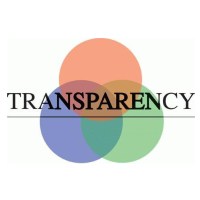Newspapers Sue California Senate for Records of Two Disgraced Lawmakers

Twenty-three years ago, the California Supreme Court gave state officials a lot of leeway over what information from their calendars and schedules they could keep under wraps, by balancing protection of the public’s right to know and government’s deliberative process.
Newspapers have argued for years that the state Senate abuses its discretion and filed a suit last week when lawmakers refused to release information requested about disgraced Senators Leland Yee, D-San Francisco, and Ron Calderon, D-Montebello.
“At a time when two senators are under indictment for their conduct in secret meetings, you might think the Legislature and its leaders would be anxious to show they have nothing to hide,” Bert Robinson, Managing Editor/Content of the Bay Area Newspaper Group (BANG), one of two companies filing the lawsuit. BANG includes the San Jose Mercury News, the Oakland Tribune and Contra Costa Times.
The other plaintiff is LANG, the Los Angeles Newspaper Group, which includes the Los Angeles Daily News, the Pasadena Star-News, the Torrance Daily Breeze and the Long Beach Press-Telegram.
When the Supreme Court ruled in Times Mirror Company v. Sacramento County Superior Court that newspapers could not have five years worth of Republican Governor George Deukmejian’s appointment calendars and schedules, it said the records were not the kind of correspondence that the California Public Records Act meant to make available.
But the court didn’t ignore the public’s right to know what elected officials were up to; it just tipped the scales toward secrecy, all things considered. Justice Armand Arabian put it thusly:
“There may be cases where the public interest in certain specific information contained in one or more of the Governor's calendars is more compelling, the specific request more focused, and the extent of the requested disclosure more limited; then, the court might properly conclude that the public interest in nondisclosure does not clearly outweigh the public interest in disclosure, whatever the incidental impact on the deliberative process.”
The newspapers argue that the serious corruption charges swirling around Senators Lee and Calderon are “compelling” reasons to release the information and point out that they have targeted their requests at specific time periods.
Senators are unmoved. Unlike many California public officials, they have a blanket policy against releasing any calendar or schedule information. Governor Jerry Brown releases all of his and other officials release them under a wide range of conditions.
Calderon is facing a 24-count indictment for allegedly accepting bribes from an undercover FBI agent, money laundering, wire fraud and other indiscretions. Yee has been charged with racketeering, bribery, wire fraud, public corruption and conspiracy to sell firearms. They are both suspended from the Senate but are still being paid.
BANG asked to see records for Yee covering 26 dates between October 2011 and March 2014, according to the Contra Costa Times. An FBI affidavit identified those as dates the senator met with individuals in commission of the alleged crimes. LANG asked for Calderon records from a dozen dates between February 2012 and March 2013.
The requests were rejected by the Senate Rules Committee, which is chaired by outgoing Senate Pro Tempore Darrell Steinberg (D-Sacramento).
–Ken Broder
To Learn More:
Newspapers Sue California Senate for Records on Indicted Lawmakers (by Maria Dinzeo, Courthouse News Service)
Bay Area and L.A. News Groups Sue California Senate for Indicted Senators' Calendars (by Matthias Gafni, Contra Costa Times)
- Top Stories
- Controversies
- Where is the Money Going?
- California and the Nation
- Appointments and Resignations
- Unusual News
- Latest News
- California Forbids U.S. Immigration Agents from Pretending to be Police
- California Lawmakers Urged to Strip “Self-Dealing” Tax Board of Its Duties
- Big Oil’s Grip on California
- Santa Cruz Police See Homeland Security Betrayal in Use of Gang Roundup as Cover for Immigration Raid
- Oil Companies Face Deadline to Stop Polluting California Groundwater





